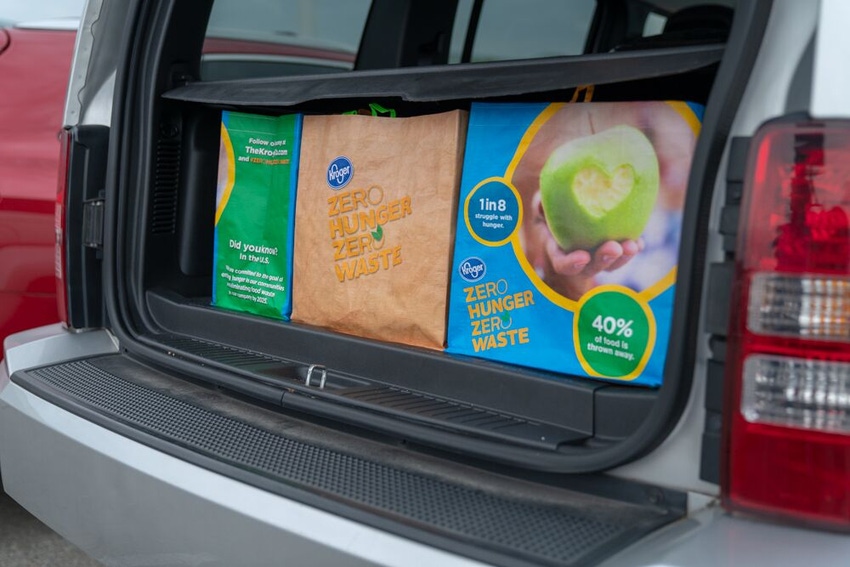Kroger’s ESG report details progress in 2018 on the company’s social impact plan as well as its 2020 sustainability goals.

The Kroger Co. recently released the results of its 2019 Environmental, Social and Governance (ESG) report, boasting a 9 percent decrease in food waste in 2018.
“We know our customers, associates, stakeholders and investors care deeply about people and our planet,” said Rodney McMullen, Kroger’s chairman and CEO, in a letter to ESG stakeholders. “The world around us is changing, too—a warming climate, global population growth, loss of biodiversity, water scarcity and more. These eco-realities affect our collective ability to feed people today and in the future. They are also the force behind Kroger’s Zero Hunger | Zero Waste plan. We know 40 percent of food produced in the U.S. is thrown out, yet one in eight people in our country are food insecure—perhaps even someone we know. Redirecting just one-third of the food wasted in the U.S. every year would more than feed those struggling with hunger.”
The Cincinnati-based grocer’s Zero Hunger | Zero Waste plan, introduced in 2017, is the company’s commitment to end hunger in its communities and eliminate waste across the company by 2025. It includes the following seven points:
Establish a $10 million innovation fund within The Kroger Co.
Accelerate food donations to provide 3 billion meals by 2025.
Donate not just more food but more balanced meals.
Advocate for public policy solutions to address hunger.
Achieve all Zero Waste 2020 goals outlined in the annual Kroger sustainability report, including zero food waste by 2025.
Join forces with both new and longstanding partners.
Transform communities and improve the health of millions of Americans by 2025.
“As America’s grocer, we believe Kroger has the size, reach, expertise and dedicated associates to protect the environment and advance positive change in the communities we serve,” says Lisa Zwack, head of sustainability for The Kroger Co. “Through Kroger’s Zero Hunger | Zero Waste social impact plan, we are on a journey to end hunger in the places we call home and eliminate waste across our company by 2025. We have ambitious sustainability goals for 2020, thoughtful plans to drive innovation, strong partnerships and committed associates.”
Kroger’s ESG report details progress in 2018 on Kroger's social impact plan as well as its 2020 sustainability goals.
“Our Environmental, Social and Governance report is an annual assessment of the Kroger family of companies’ progress on topics that matter to our customers, associates, shareholders and other valued stakeholders,” says Zwack. “It’s one of the ways we maintain our commitment to being open and transparent about the way our company operates.”
Other environmental highlights from the report include:
Improved Food Waste Diversion: Kroger achieved a 13 percent improvement in its food waste diverted from landfill, moving from 27 percent diversion in 2017 to 40 percent in 2018.
Achieved 2020 Electricity Savings Goal: Kroger stores have saved more than 2 billion kilowatt hours, placing the company ahead of its 40 percent electricity savings goal by 2020.
Progress on Packaging and Plastics: Kroger reduced the amount of plastic resin in its packaging by 9.1 million pounds so far, close to its 10 million-pound goal by 2020.
Commenced Installation of Solar Panels at Paramount Distribution Center: Kroger's 555,000-square-foot facility is expected to be powered by more than 7,000 solar panels, producing 50 percent of electricity for the automated distribution center in Paramount, Calif.
“Today, doing the right thing for society and being environmentally sustainable are table stakes for corporations,” said Jessica Adelman, Kroger’s group vice president of corporate affairs and chief social impact officer, in a statement. “That’s why we’re proud to go above and beyond with our Zero Hunger | Zero Waste social impact plan. Our progress in each of the environmental, social and governance aspects of sustainability are a direct result of these innovative and intentional efforts.”
Zwack also says Kroger is making significant progress on its Zero Hunger | Zero Waste seven-point plan overall.
“Our Zero Hunger | Zero Waste plan includes ambitious goals for a better future, but we know we can’t achieve this vision alone. We continue to collaborate with longstanding and new national partners, advisers and innovators who are helping solve the complex problems surrounding food insecurity and waste,” she says.
About the Author(s)
You May Also Like


